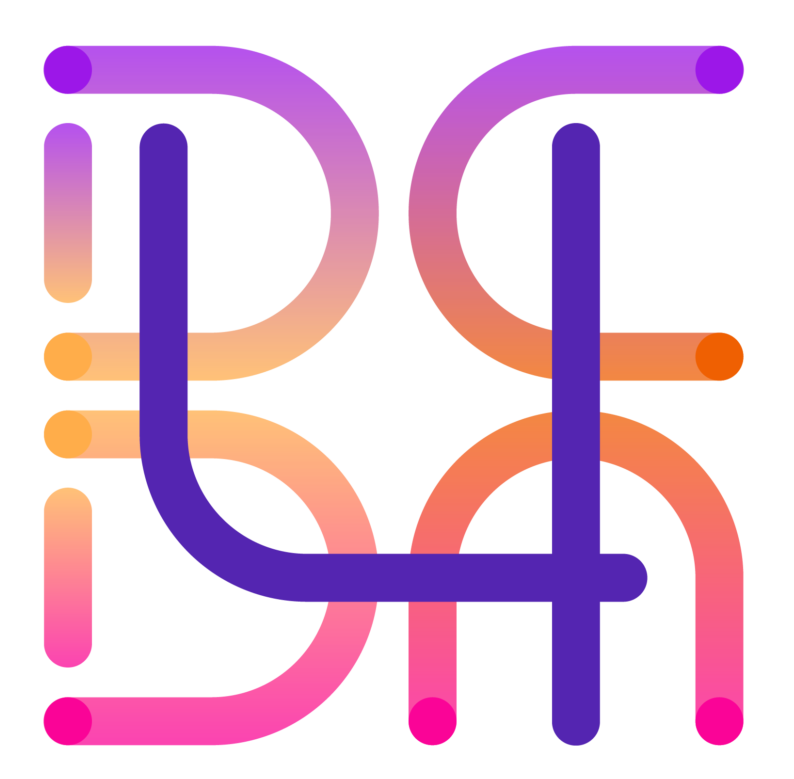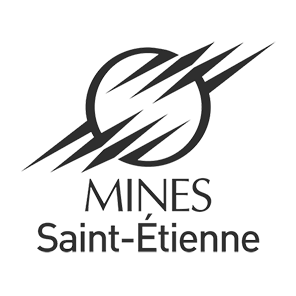Digital Creativity for Developing Digital Maturity Future Skills
Politecnico di Milano is a scientific-technological university funded in 1863, which trains engineers, architects and designers. The Department of Design was created in 2013 from the InDACo (Industrial Design, Arts, Communication and Fashion). The 2021 QS World University Rankings placed Politecnico di Milano 5th in the world, third in Europe and first in Italy in the area of Art & Design.
In recent years the Department of Design has come to represent the largest design department in Italy, rivalling centres of excellence at the international level. It conducts research and provides training and consulting services in fields ranging from intangible design to concrete artefacts. The Department of Design is well experienced in joint research projects and brings outstanding competencies in introducing design-enabled innovation into diverse contexts, being a world leader in advancing design knowledge and in exploring and opening new fields of activity, such as the introduction of design methods and tools in the domains of services, social innovation, business strategies and business modelling.
Politecnico di Milano is participating in DC4DM as project leader through the cooperation of three research groups coordinated by Prof. Marita Canina – IDEActivity Center.
IDEActivity Center (Design Dept) is the Center of Excellence in Creativity and Design of Politecnico di Milano. The research core is devoted to developing creativity-driven methods – focused on the synergy between creativity techniques and design tools – that enable collaborative actions aimed at identifying and solving problems through the direct involvement of users. A specific focus is devoted to understanding how the current scenario of digital evolution is influencing the creative design process. Indeed, the center has developed the first theoretical version of the Digital Creativity for Digital Maturity model which aim to empower the human creative skills to guide the strategic application of emerging digital technologies – to create innovative digital solutions- in any field of application, boosting innovation.
CI.Lab (Design Dept) has matured experiences and capabilities in developing and managing creativity processes through the involvement and management of several projects that deal with the development of methodology and tools to promote entrepreneurship, ICT and creativity.
NECSTLab (DEIB Dept) with an expertise in the areas of reconfigurable computing, self-aware and autonomic systems, hardware/software co-design, embedded systems, and high-performance processors and systems will provide mentoring during the implementation of the model.
Founded in 1816, Mines Saint-Etienne is the oldest French elite school of engineering outside Paris, part of Institut Mines–Telecom, the #1 group of graduate schools of engineering and management in France. With 2400 students, 25% of which international, 400 staff, 140 faculty, 8M€ of research contracts per year and 5 ERC grants hosted, it is a highly international graduate school of engineering science and management that combines human-size, high staff-to-student and staff-to-faculty ratios, closeness to industry and academic excellence. The Times Higher Education ranks it as the #1 institution in Engineering and Technology in both regions it belongs to : Auvergne Rhone-Alpes and Provence Alpes Côte d’Azur (Top 250 worldwide in 2020). Mines Saint-Etienne’s two campuses are located at the heart of two major French metropolitan areas and economic regions: Saint-Etienne in the Lyon Saint-Etienne metropolitan area and Auvergne Rhone-Alpes Region, and Gardanne in the Aix Marseille metropolitan area and Provence Alpes Cote d’Azur Region.
Mines Saint-Etienne is participating in DC4DM project as HE partner, particularly providing a ten years-experience with international multidisciplinary innovation workshops for highly motivated and selected international students. Co-designed with partner universities from the UK, Italy and USA, the “L*unchBox Workshop” activity has been experienced over the yeays by graduate students in innovation strategy, product and service design and engineering spanning over 40 nationalities. Mines Saint-Etienne also has a four years-experience in disseminating techniques and methods experimented in this highly focused context to a broader audience of students in general engineering and groups of several hundreds of students (“Dynamo Days” activity at Mines Saint-Etienne and “Disrupt Campus” activities at the IMT network scale).
University of Madeira (UMa) is a state university established in 1988 on Madeira Island, Portugal. UMa is organised into 4 faculties – Exact Sciences and Engineering, Life Sciences, Social Sciences, Arts and Humanities – and 2 schools – Health Higher School and Technologies and Management Higher School. Despite being located in a peripheral area of Europe, UMa is an international university aiming to achieving excellence through education, research and service to regional, national and international communities. UMa promotes applied scientific and cultural research, enhancing its ability to establish strategic partnerships with companies and international universities. Scientific research regards Arts and Humanities, Education, Life, Earth and Environmental Sciences, Mathematics, Physical and Engineering Sciences and Social Sciences, and has received financial support from FCT/FEDER and the European Community through INTERREG international projects.
In the context of a small island, the local academic community plays the role and duty to prepare young minds and support local enterprises in developing the skills and strategies to respond to the current and future environmental, social and economic challenges. Madeira island needs more collaborative and interdisciplinary platforms and methods to ideate, test, implement and scale up innovations that can contribute to its sustainable development. From tourism to food production and distribution, from manufacturing to construction, from natural resources monitoring to public sector services and education, digital technologies can play a very important role on this small peripheral territory. Where resources are limited, where the equilibrium between natural resources offering and human needs is under constant threat, it is necessary to prepare future designers and entrepreneurs with the right mindset, capacity to collaborate and generate future sustainable and regenerative systems that can benefit to not just individuals and local economy, but especially the environment and the society relating with it. University of Madeira is participating in DC4DM project as HE partner bringing a variety of expertise from the field of design thinking and innovation, IT, entrepreneurship and management, bioeconomy and sustainable development.
Télécom Saint-Etienne is the engineering school of Université Jean Monnet in Saint-Etienne, and an affiliated school of the Institut Mines Télécom. It is accredited by the French national commission on engineering degrees to confer an engineering degree (diplôme d’ingénieur) in telecommunications. The engineering curriculum requires 3 years of study to obtain master-level diploma. The school offers a first-year core curriculum and then 9 specialized tracks in the second and third year of the engineering curriculum, including computer science, telecommunications, computer networks, electronics, optics, and image processing. The teaching staff is made of 48 permanent teachers as follows: 33 tenured teacher/researcher (23 associate professors and 10 professors), 5 teachers detached from college, and 10 teachers under full-time permanent contract. An administrative and technical staff of 26 persons support the teachers. The pedagogical activities involve 700+ students: 585 engineering master-level student (French “Grandes Ecoles”) and 148 in other curriculum (mainly Master in design and communication and web development). The school is supported by three research laboratories: Hubert Curien (UMR CNRS 5516), Institut Camille Jordan (UMR CNRS 5208), and laboratory ELICO (EA 4147). It participates to the French Institute Carnot Télécoms and Digital Society thanks to the quality of its research partnership with the private sector.
Télécom Saint-Etienne is participating in DC4DM project as HE partner. It leverages its experience in learning labs activities and in SMEs interactions to foster and promote digital creativity. First, Télécom Saint-Etienne learning lab — called IRAM — is a place for interactions and transdisciplinary between Humanities and Social Sciences & Engineering and technology. Its main fields of applications are culture, education, health, IT companies. The learning lab aims at bringing creativity and design thinking processes at the core of the engineering curriculums, and to help professionals and students to better understand stake and issues of the digital age. Second, the school also co-initiated with Centrale Lyon and EMLyon business school an international network of learning lab since 2014. It combines more than a hundred learning labs mostly in France but also in Belgium, Canada and Morocco. Second, Télécom Saint-Etienne experience reflects from its interactions with the private sector, mostly made of SMEs in our region. Those SMEs are structured in a cluster called Digital League (100+ companies) in the digital market area. These interactions also startups from “La Base” — Télécom Saint-Etienne incubator.
Established in 1997 Startup Madeira is the local entity responsible for the development and application of the European Commission’s Business Innovation Centres Program (EC-BIC´s). Startup Madeira’s mission is to serve as an instrument for regional development by supporting entrepreneurs in the implementation of their innovative business project at Região Autónoma da Madeira, from the consolidation of an idea to its practical implementation, providing an environment favourable to entrepreneurship, namely among younger people, and acting as a facilitator and central point of contact for an entrepreneurial ecosystem.
The multidisciplinary team at Startup Madeira provides consultancy, coaching and mentoring through the numerous programs, events and activities. It provides acceleration programs to startups, reunite entrepreneurs, both local and foreign, and it helps through a physical incubator, virtual office and co-work space.
Startup Madeira is a full member of EBN which allows it to provide additional support in the development of innovative projects, such as: exportation to foreign markets, internationalization/transnational cooperation, exchange of experiences, transfer of know-how and technology, as well as contacts with other enterprises supported by the innovation centres. It also contributes to an efficient and prompt connection with other programmes and entities linked to the European Union.
Startup Madeira is participating in DC4DM project as tech-driven SME, in particular by providing the following experience and types of expertise.
– internationalization/transnational co-operation, exchange of experiences, transfer of know-how and technology, as well as contacts with other enterprises supported by the centres. It also contributes to an efficient and prompt connection with other programmes and entities linked to the EU.
– provide support, helping to create conditions that will favour the appearance of micro/small businesses, by bringing to life entrepreneurship, modernization and business innovation. 40 companies monitored monthly by Startup Madeira and about 280 directly supported companies.
– It has participated in several transnational projects in programmes; It has previous experience in running mobility exchange projects: has participated in 4 calls of Eramus for Young Entrepreneurs, It has several years of experience in fostering an entrepreneurship education program in schools; It also streamlines support programs for entrepreneurs and local projects.





